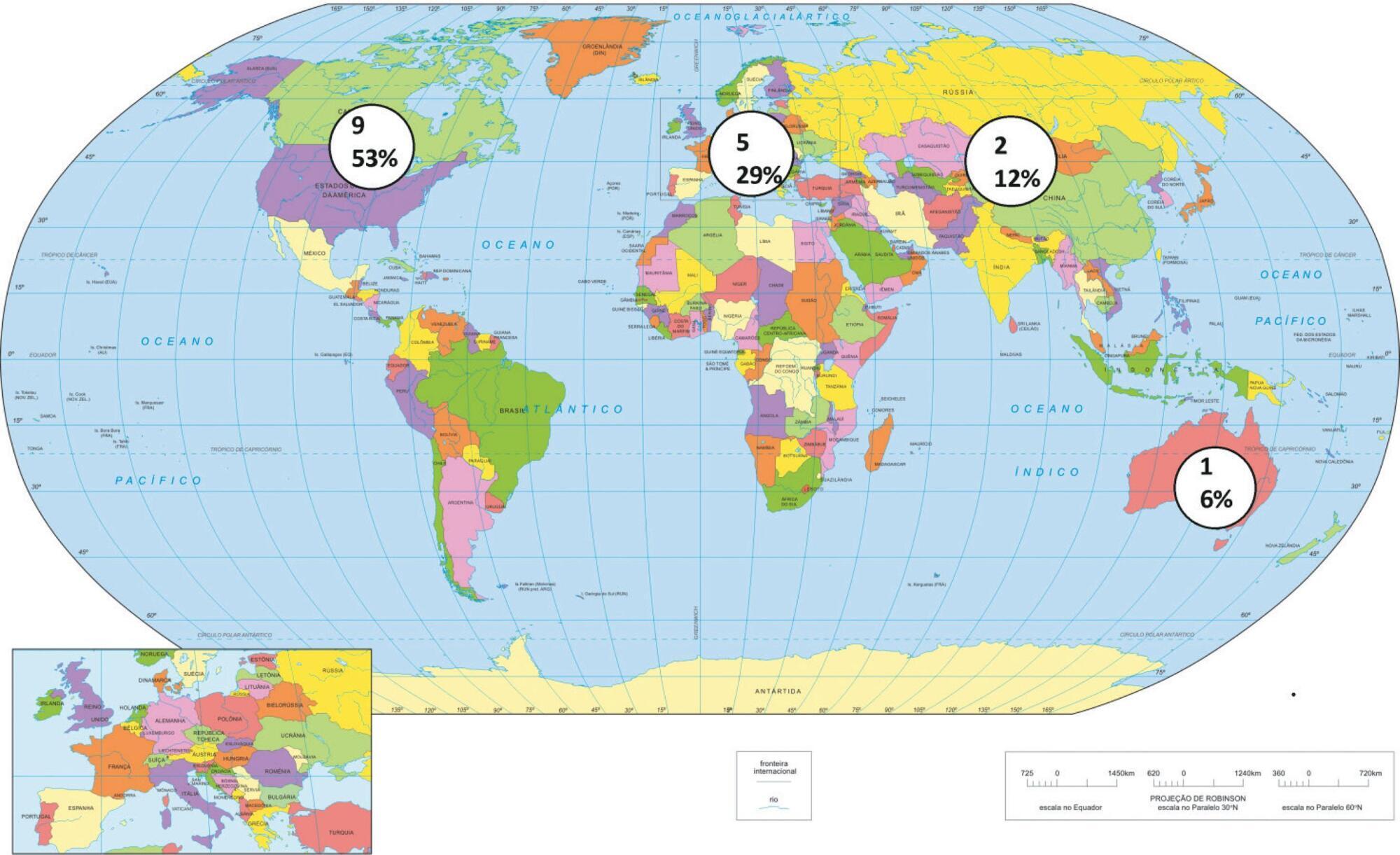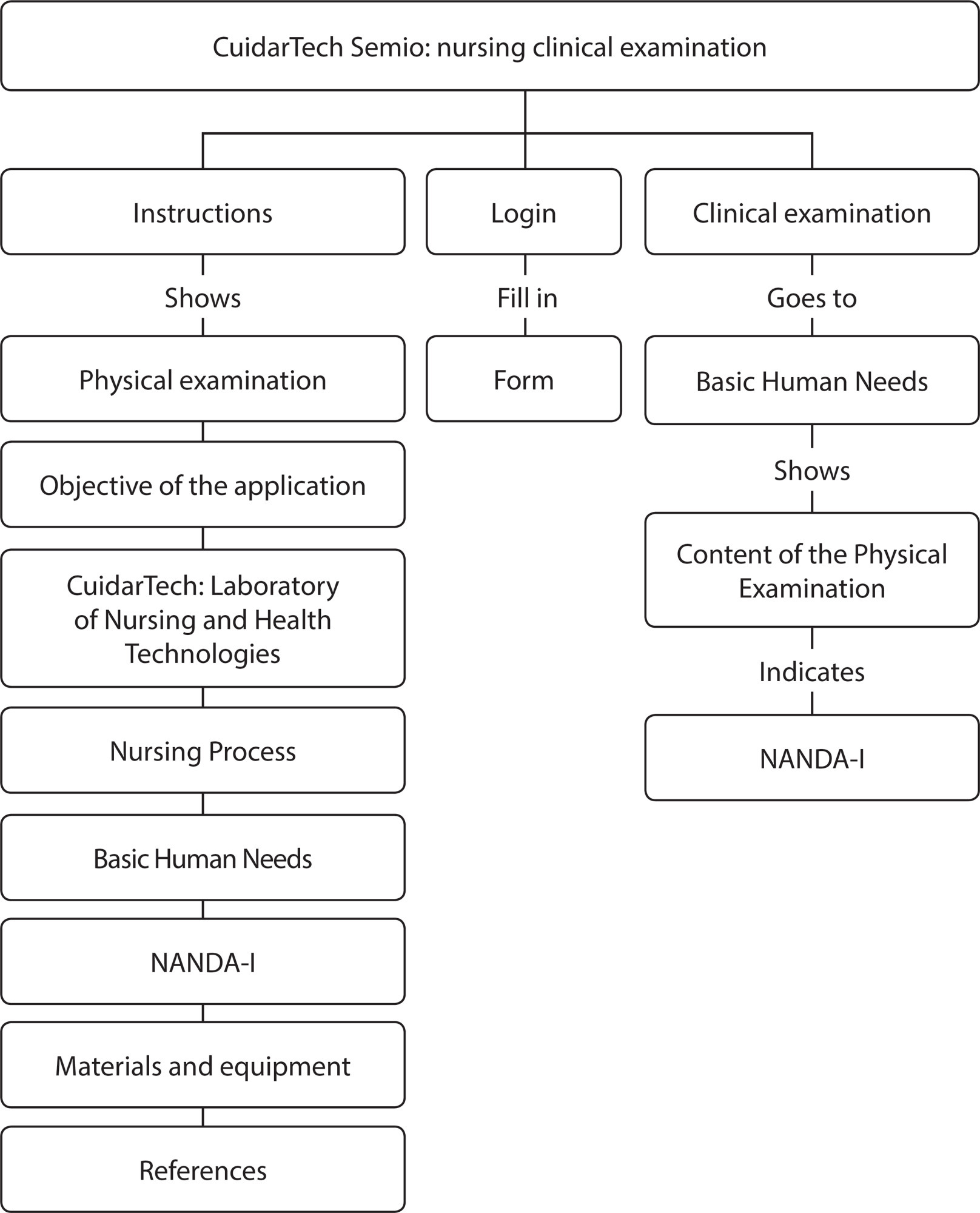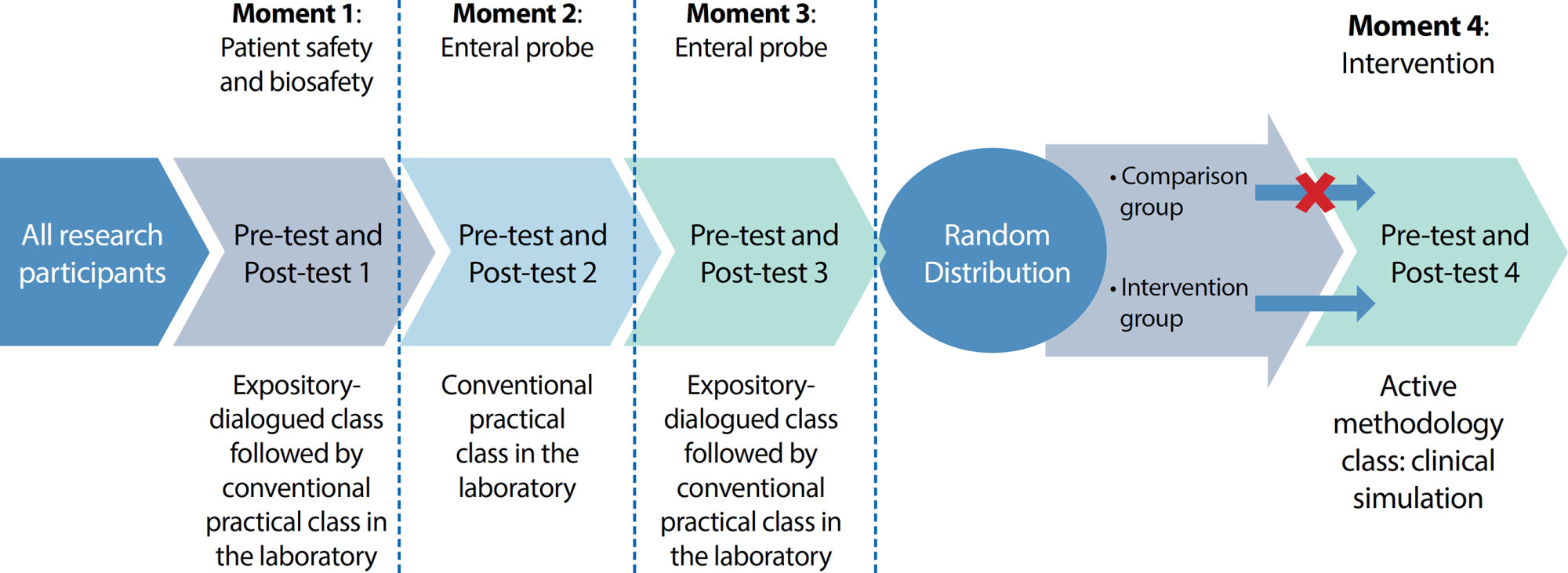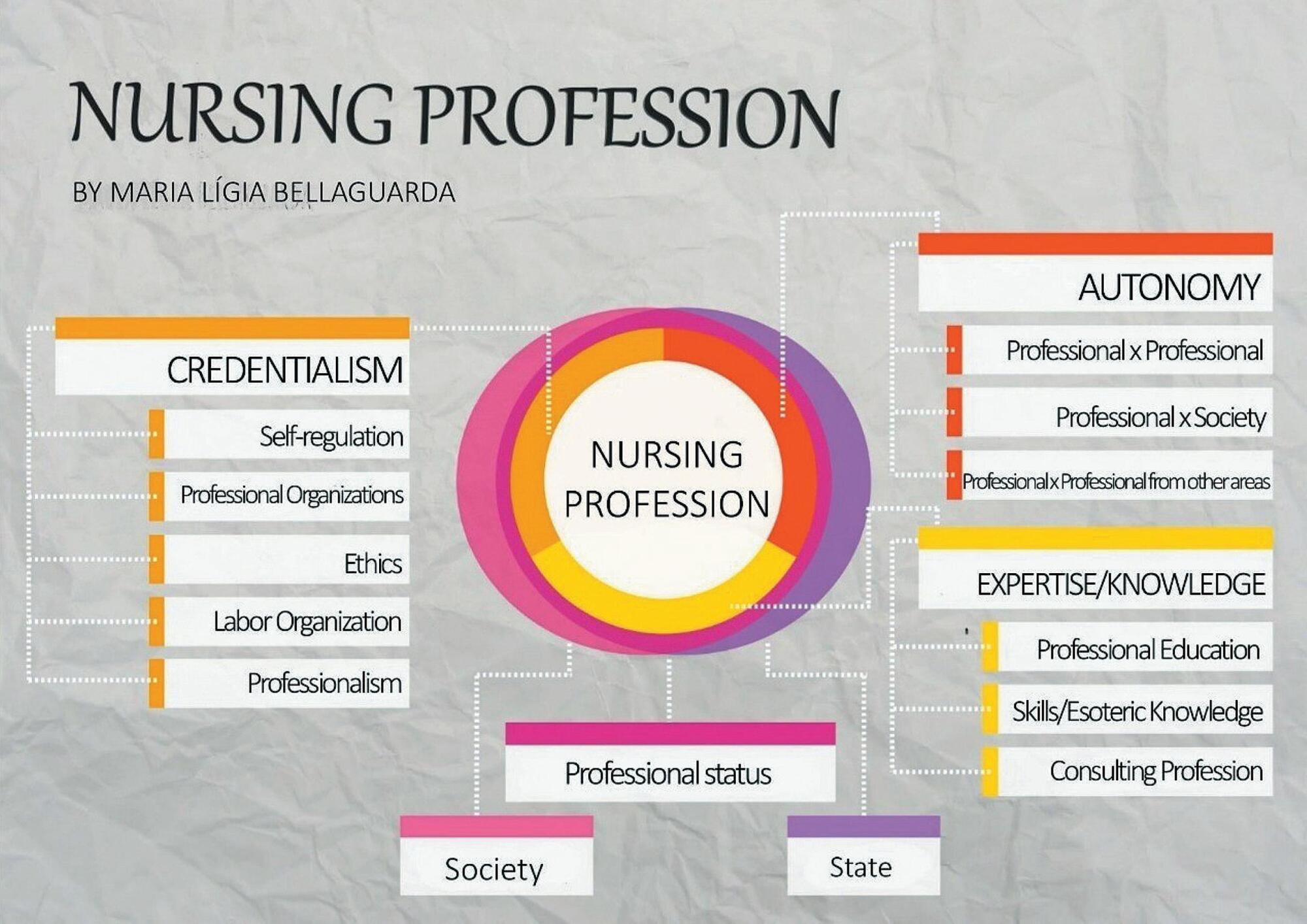-
REVIEW
Brazilian nursing specific situation, middle and micro-range theories: a bibliometric study
Revista Brasileira de Enfermagem. 2024;77(4):e20230520
09-20-2024
Abstract
REVIEWBrazilian nursing specific situation, middle and micro-range theories: a bibliometric study
Revista Brasileira de Enfermagem. 2024;77(4):e20230520
09-20-2024DOI 10.1590/0034-7167-2023-0520
Views0See moreABSTRACT
Objectives:
to map the nursing theories developed in stricto sensu graduate programs in nursing in Brazil.
Methods:
a bibliometric study, carried out on the Coordination for the Improvement of Higher Education Personnel Theses and Dissertations Portal in October 2023. The controlled descriptors “Nursing Theory” and “Nursing Models” and the uncontrolled descriptors “Theories” and “Middle-Range Theory” were used. Selected studies were cataloged for analysis, which was conducted by the study authors, who have a doctoral degree and expertise in research on nursing theories.
Results:
thirty-nine nursing theories were mapped, with a predominance of middle-range theories (79.5%), focusing on nursing diagnostic concepts and use of the theoretical-methodology strategy of theoretical-causal validity.
Conclusions:
the study identified nursing theories developed in Brazil, recognizing trends, development strategies, theorized objects of disciplinary interest and investments necessary for practical application in Brazilian contexts.

-
ORIGINAL ARTICLE
Sociocognitive factors determining compliance with standard precautions by nursing professionals during the COVID-19 pandemic
Revista Brasileira de Enfermagem. 2024;77(4):e20230301
09-20-2024
Abstract
ORIGINAL ARTICLESociocognitive factors determining compliance with standard precautions by nursing professionals during the COVID-19 pandemic
Revista Brasileira de Enfermagem. 2024;77(4):e20230301
09-20-2024DOI 10.1590/0034-7167-2023-0301
Views0See moreABSTRACT
Objectives:
to assess the socio-cognitive factors determining adherence to standard precautions by nursing professionals in care practice during the COVID-19 pandemic in Brazil.
Methods:
an analytical cross-sectional study, carried out with 9,039 nursing professionals in Brazil, using an electronic form containing participant sociodemographic, training and work variables, and the Brazilian version of the Standard Precautions Questionnaire. Descriptive and inferential statistics were used using the statistical software R.
Results:
participants recognize standard precautions as effective measures to reduce infections and report intention to perform them. Training regarding standard precautions was evidenced as a facilitator of adherence (4.72; SD: 0.73), and problems related to materials (3.78; SD: 1.45) were a hindrance.
Conclusions:
among the determining factors, facilitating organization presented the highest score, followed by intention to perform. Facilitating and hindering factor identification makes it possible to develop intervention strategies to strengthen patient safety and reduce occupational risks among professionals.
-
ORIGINAL ARTICLE
Middle-range theory for nursing for care in the context of cardiovascular risk
Revista Brasileira de Enfermagem. 2024;77(4):e20240190
09-20-2024
Abstract
ORIGINAL ARTICLEMiddle-range theory for nursing for care in the context of cardiovascular risk
Revista Brasileira de Enfermagem. 2024;77(4):e20240190
09-20-2024DOI 10.1590/0034-7167-2024-0190
Views0ABSTRACT
Objectives:
to develop a middle-range nursing theory for care in the context of cardiovascular risk.
Methods:
a theoretical development study, through induction through research and ICNP® practice standards, carried out in six stages: concept analysis; ICNP® terminological subset structuring; theory contextualization and purpose; proposition construction; modeling; and assumption construction.
Results:
the Theory of Care in the Context of Cardiovascular Risk has a middle-range scope, describing care, prescribing actions to promote health and reduce cardiovascular risk. Thirteen propositions were constructed in three categories (nursing metaparadigm, central and factorial concepts), two models and 16 assumptions.
Final Considerations:
the theory contributes to the construction of knowledge arising from the nursing process for care in the context of cardiovascular risk, generating propositions, assumptions and modeling, which will enable theoretical testing.
Keywords:Concept FormationHeart Disease Risk FactorsNursing TheoriesStandardized Nursing TerminologyTheoretical ModelsSee more
-
ORIGINAL ARTICLE
Content validity of guidance on self-care in the post-operative period for breast cancer
Revista Brasileira de Enfermagem. 2024;77(4):e20240188
09-20-2024
Abstract
ORIGINAL ARTICLEContent validity of guidance on self-care in the post-operative period for breast cancer
Revista Brasileira de Enfermagem. 2024;77(4):e20240188
09-20-2024DOI 10.1590/0034-7167-2024-0188
Views0See moreABSTRACT
Objectives:
to validate the content of a guidance guide on self-care in the postoperative period of breast surgery for breast cancer.
Methods:
a methodological study with content validity, carried out with 15 expert nurses and physiotherapists, between May and July 2022. Recruitment took place from the Lattes Platform, using snowball sampling. The level of relevance and representativeness for each item was verified using the Content Validity Index (CVI). It was considered valid when CVI was equal to or greater than 78% (0.78).
Results:
from the initial total of 37 items, two were excluded, as they had insufficient practical relevance and theoretical relevance, and another five items which, although presenting a CVI lower than the established cut-off, were suggested to be rewritten and grouped with other similar items.
Conclusions:
thirty items were considered valid and demonstrated important and significant characteristics, constituting suitable material for application in clinical practice.
-
ORIGINAL ARTICLE
Construction and enhancement of a prototype for a medical-hospital equipment for hypodermoclysis: a qualitative study
Revista Brasileira de Enfermagem. 2024;77(4):e20240059
09-20-2024
Abstract
ORIGINAL ARTICLEConstruction and enhancement of a prototype for a medical-hospital equipment for hypodermoclysis: a qualitative study
Revista Brasileira de Enfermagem. 2024;77(4):e20240059
09-20-2024DOI 10.1590/0034-7167-2024-0059
Views0See moreABSTRACT
Objectives:
to construct a Subcutaneous Hydration Device semi-functional prototype and gather initial information to improve this prototype design and realize its acceptance potential.
Methods:
a qualitative, descriptive and exploratory study, which used focus group, following the Technology Acceptance Model. The group was held at the Escola Superior de Enfermagem de Coimbra, Portugal, in December 2022, composed of nine participants from six different disciplinary areas, and followed thematic analysis.
Results:
four topics emerged associated with the device components: elastomeric infusion pump; needle/access device; clamp; administration set. From these topics, topics were triggered that highlighted: characteristics about the target population; ease of use and accessories; patient comfort and safety; and device application context.
Final Considerations:
the Subcutaneous Hydration Device semi-functional prototype is viable and interesting for the clinic. The results support its improvement and direct future investments for experimental studies.

-
ORIGINAL ARTICLE
Middle-range theory of the existential dimension of being-in-the-world of chronic kidney disease: Grounded Theory
Revista Brasileira de Enfermagem. 2024;77(4):e20230152
09-20-2024
Abstract
ORIGINAL ARTICLEMiddle-range theory of the existential dimension of being-in-the-world of chronic kidney disease: Grounded Theory
Revista Brasileira de Enfermagem. 2024;77(4):e20230152
09-20-2024DOI 10.1590/0034-7167-2023-0152
Views0See moreABSTRACT
Objectives:
to develop a middle-range theory of the existential dimension of being-in-the-world of chronic kidney disease in the light of humanistic nursing theory.
Methods:
exploratory-descriptive, qualitative, Grounded Theory study, whose guiding question was: what theoretical relationships can be established between clinical practice carried out in the context of renal replacement therapies and the concepts of humanistic nursing theory? Data were collected through semi-structured interviews with nursing staff and chronic kidney disease patients.
Results:
a theory was developed that describes and explains the existential dimension of being-in-the-world of chronic kidney disease, identifying the qualitative evidence present in this context.
Final Considerations:
the theory contributes to clinical nursing practice qualification in nephrology, consolidating nursing as an art and science, because it arises from care practice and research, in addition to rescuing what differentiates it within the health disciplines, which is care par excellence.

-
ORIGINAL ARTICLE
Transgender people’s knowledge about the adverse effects of cross-hormonization: challenges for nursing
Revista Brasileira de Enfermagem. 2024;77(4):e20230346
09-20-2024
Abstract
ORIGINAL ARTICLETransgender people’s knowledge about the adverse effects of cross-hormonization: challenges for nursing
Revista Brasileira de Enfermagem. 2024;77(4):e20230346
09-20-2024DOI 10.1590/0034-7167-2023-0346
Views0See moreABSTRACT
Objectives:
to identify trans women’s and men’s knowledge about the adverse effects of cross-hormonization and understand the repercussions of hormonization practices on trans women’s and men’s health.
Methods:
exploratory, descriptive, qualitative research, developed with 41 participants, from July 2019 to February 2020, in a trans health outpatient clinic. Thematic-categorical content analysis was used.
Results:
from the analysis, the categories emerged: Knowledge about the adverse effects of cross-hormonization; and Cross-hormonization practices and their meaning.
Final Considerations:
nursing practices, based on the identification of knowledge about adverse effects and the understanding of cross-hormonization practices in trans women’s and men’s health, can result in more inclusive care.
-
EDITORIAL
Potential of Artificial Intelligence in Evidence-Based Practice in Nursing
Revista Brasileira de Enfermagem. 2024;77(5):e770501
09-09-2024
Abstract
EDITORIALPotential of Artificial Intelligence in Evidence-Based Practice in Nursing
Revista Brasileira de Enfermagem. 2024;77(5):e770501
09-09-2024DOI 10.1590/0034-7167.2024770501
Views0Evidence-based practice (EBP) has established itself as a fundamental pillar in nursing, driving effective clinical decision-making based on high-quality scientific research. The primary goal of EBP is to ensure that patients receive the most appropriate and safe care, based on the best available evidence. In this context, knowledge synthesis methods are essential tools for EBP, […]See more
-
REVIEW
Mental health interventions implemented in the COVID-19 pandemic: what is the evidence?
Revista Brasileira de Enfermagem. 2021;74:e20200635
06-11-2021
Abstract
REVIEWMental health interventions implemented in the COVID-19 pandemic: what is the evidence?
Revista Brasileira de Enfermagem. 2021;74:e20200635
06-11-2021DOI 10.1590/0034-7167-2020-0635
Views0See moreABSTRACT
Objective:
to map the evidence on mental health interventions implemented during the COVID-19 pandemic.
Method:
this scoping review was carried out in the MEDLINE/PubMed, SCOPUS, Web of Science, PsycINFO, and Science Direct databases and in the medRxiv, bioRxiv, and PsyArXiv preprints servers using the descriptors “Covid-19”, “coronavirus infection”, “coronavirus”, “2019-nCoV”, “2019 novel coronavirus disease”, “SARS-CoV-2”, “health personnel”, “general public”, and “mental health”.
Results:
eight articles were selected and categorized into mental health interventions for the population, among which mental health interventions were for people diagnosed with suspicion/confirmed COVID-19 and mental health interventions for health professionals.
Conclusion:
telemonitoring, virtual games and strategies focused on social support and muscle relaxation techniques, characterized as non-pharmacological and low-cost, were shown as interventions, which, since they are effective, need to be encouraged and included in mental health care practices.

-
Nursing performance in robotic surgeries: integrative review
Revista Brasileira de Enfermagem. 2019;72(3):795-800
06-07-2019
Abstract
Nursing performance in robotic surgeries: integrative review
Revista Brasileira de Enfermagem. 2019;72(3):795-800
06-07-2019DOI 10.1590/0034-7167-2018-0426
Views0ABSTRACT
Objective:
To know the scientific production on the performance of the nursing staff in robotic surgeries, identifying the role of the nurse in the three perioperative periods.
Methods:
Integrative review, search in the databases National Library of Medicine, National Institutes of Health, Scientific Electronic Library Online and Biblioteca Virtual em Saúde, performed from June to September, 2017; 17 selected articles met the inclusion criteria.
Results:
Most articles were published in foreign journals in English, nine in the United States, classified with evidence level of 4 and 5. The role of nursing in the perioperative period was identified, related mainly to patient safety. The most mentioned perioperative period in the articles was the intraoperative, with greater concern in the positioning of the patient.
Conclusion:
The nursing performance and patient safety in robotic surgeries are similar to the ones in major surgeries, requiring from the patient a specific knowledge on the setting and preparation of the robot.
Keywords:Nurse's RolePerioperative NursingRoboticsSurgical Procedures, OperativeTechnological DevelopmentSee more
-
ORIGINAL ARTICLE
“Waiting for a miracle”: Spirituality/Religiosity in coping with sickle cell disease
Revista Brasileira de Enfermagem. 2019;72(6):1554-1561
10-21-2019
Abstract
ORIGINAL ARTICLE“Waiting for a miracle”: Spirituality/Religiosity in coping with sickle cell disease
Revista Brasileira de Enfermagem. 2019;72(6):1554-1561
10-21-2019DOI 10.1590/0034-7167-2018-0635
Views0See moreABSTRACT
Objective:
To understand spirituality/religiosity as experienced by people with sickle cell disease, and its influence on coping with the disease.
Method:
A qualitative, descriptive, and exploratory study conducted in the State of Bahia. Twenty-nine respondents participated in semi-structured interviews. Content analysis was used to analyze the empirical material.
Results:
Individuals with sickle cell disease experience spirituality/religiosity motivated by their hope for a miracle, and fear of death; among their rites are: reading religious materials, individual and group prayer, and attendance at worship services. The effects on their health include: comfort by means of coping by comparing two evils, anxiety relief, social support, and lifestyle changes; however, spirituality/religiosity may be impaired.
Final considerations:
This study demonstrates the need to qualify health professionals to address spiritual issues of these individuals during illness, with the aims of diagnosing suffering and anguish, and providing care, comfort and strengthening of the spiritual bonds of these individuals.
-
ORIGINAL ARTICLE
Construction and validation of a mobile application for development of nursing history and diagnosis
Revista Brasileira de Enfermagem. 2020;73:e20190674
12-21-2020
Abstract
ORIGINAL ARTICLEConstruction and validation of a mobile application for development of nursing history and diagnosis
Revista Brasileira de Enfermagem. 2020;73:e20190674
12-21-2020DOI 10.1590/0034-7167-2019-0674
Views0ABSTRACT
Objectives:
to describe the construction and validation process for a mobile application for development of the nursing history and diagnosis.
Methods:
methodological study conducted in 2018 in three stages: content creation, based on the Basic Human Needs categories and nursing diagnoses; content assessment by nine nursing judges, with calculation of the content validity index; and construction of the application, which included definition of the requirements, a conceptual map, implementation and prototyping options, tests and implementation.
Results:
the application was organized by sections: Grouped Basic Human Needs, Cranial pair tests, Clinical assessment scales and Additional tests. Two section were adjusted according to the judges’ suggestions.
Final Considerations:
it is the first application produced in Brazil based on the Basic Human Need categories, which enables quick access to information, concepts and typical nomenclatures of semiology, recording of clinical data and definition of nursing diagnoses.
Keywords:Educational TechnologyMobile ApplicationsNursing InformaticsNursing ProcessPhysical ExaminationSmartphoneSee more
-
ORIGINAL ARTICLE
Factors associated with vulnerability and fragility in the elderly: a cross-sectional study
Revista Brasileira de Enfermagem. 2022;75(2):e20200399
10-01-2022
Abstract
ORIGINAL ARTICLEFactors associated with vulnerability and fragility in the elderly: a cross-sectional study
Revista Brasileira de Enfermagem. 2022;75(2):e20200399
10-01-2022DOI 10.1590/0034-7167-2020-0399
Views0See moreABSTRACT
Objectives:
to assess factors associated with vulnerability and fragility in the elderly.
Methods:
crosssectional study with 384 elderly people in Fortaleza, Ceará. The Vulnerable Elders Survey and Clinical-Functional Vulnerability Index – 20 were used. Chi-square and Fisher’s exact tests were used for associations. In the analysis of the combined influence of risk factors, the stepwise logistic regression and multinomial regression methods were adopted.
Results:
251 (65.4%) non-vulnerable and 133 (34.6%) vulnerable elders. From the vulnerable elders analyzed, 42 (30.9%) are at high risk for frailty. Factors associated with vulnerability: age, gender, presence of comorbidities, hypertension, diabetes, osteoporosis and use of polypharmacy. There is a 30% increase in the chance of vulnerability for each additional drug. Physical activity reduces the chance of vulnerability by 60%. Factors associated with frailty: educational level; self-perception of health; comorbidities; polypharmacy.
Conclusions:
it is important to pay attention to the presence of arterial hypertension, osteoporosis, polypharmacy, and encourage the practice of physical activity.
-
ORIGINAL ARTICLE
Caring ability, burden, stress and coping of family caregivers of people in cancer treatment
Revista Brasileira de Enfermagem. 2019;72(6):1541-1546
10-21-2019
Abstract
ORIGINAL ARTICLECaring ability, burden, stress and coping of family caregivers of people in cancer treatment
Revista Brasileira de Enfermagem. 2019;72(6):1541-1546
10-21-2019DOI 10.1590/0034-7167-2018-0605
Views0See moreABSTRACT
Objective:
To analyze the association between the caring ability and the burden, stress and coping of family caregivers of people in cancer treatment.
Method:
A cross-sectional study with 132 family caregivers. The following instruments were applied: a characterization instrument, the Caring Ability Inventory, the Zarit Burden Interview, the Perceived Stress Scale, and the Brief COPE. The Spearman Correlation was used with significance ≤5%.
Results:
There were significant and positive correlations between total caring ability and: burden – interpersonal relationship (p=0.03); stress (p=0.02) and maladaptive coping (p=0.00); and inversely proportional correlations with problem-focused coping (p=0.03). The courage had inversely proportional correlation with: self-efficacy (p=0.03), interpersonal relationship (p=0.00), stress (p=0.04) and maladaptive coping (p=0.00). The knowledge had significant and positive correlation with problem-focused coping (p=0.00), adaptive coping (p=0.01), and inverse correlation with stress (p=0.02).
Conclusion:
The level of caring ability correlates with levels of stress and burden, and with the type of coping strategy used by family caregivers.
-
ORIGINAL ARTICLE
Clinical simulation as a Nursing Fundamentals teaching method: a quasi-experimental study
Revista Brasileira de Enfermagem. 2022;75(2):e20201155
10-18-2022
Abstract
ORIGINAL ARTICLEClinical simulation as a Nursing Fundamentals teaching method: a quasi-experimental study
Revista Brasileira de Enfermagem. 2022;75(2):e20201155
10-18-2022DOI 10.1590/0034-7167-2020-1155
Views0See moreABSTRACT
Objectives:
to evaluate students’ knowledge gain after the implementation of clinical simulation in Nursing Fundamentals disciplines.
Methods:
a quasi-experimental intervention was carried out with 60 students, distributed in comparison and intervention groups, who underwent traditional teaching and traditional teaching associated with simulated teaching, respectively. Pre-test and post-test instruments were applied to both groups.
Results:
after analyzing the students’ performance through the applied instruments, both groups had a cognitive evolution along with the taught content, however, when compared, the intervention group obtained a higher knowledge gain than the comparison group (p = 0.016), demonstrating progressive and increasing improvement with the use of the methodology.
Conclusions:
simulated teaching significantly helps students in gaining technical-cognitive knowledge. Therefore, it is recommended to adhere to the use of this methodology for teaching Nursing Fundamentals.

-
ORIGINAL ARTICLE
Eliot Freidson’s sociology of professions: an interpretation for Health and Nursing
Revista Brasileira de Enfermagem. 2020;73(6):e20180950
08-10-2020
Abstract
ORIGINAL ARTICLEEliot Freidson’s sociology of professions: an interpretation for Health and Nursing
Revista Brasileira de Enfermagem. 2020;73(6):e20180950
08-10-2020DOI 10.1590/0034-7167-2018-0950
Views0See moreABSTRACT
Objectives:
to analyze theoretical conceptions of Eliot Freidson’s Sociology of Professions scoped on health and nursing professions.
Methods:
Eight nurses were interviewed, all involved in the development of the professional Council on the timeframe from 1975 to 1986. Documental resources were Laws, Ordinances, Resolutions, Reports, Meeting Minutes and Public Deeds. Information was organized as from literature and Eliot Freidson’s conceptions, and thematic content analysis was carried out.
Results:
the concepts authored by Eliot Freidson allowed for the development of a concept chart that portrays the nursing profession and that may be expanded for the other occupations in the health field, in consonance with professional organization in the country.
Final Considerations:
Eliot Freidson’s framework, in interpretation for nursing, consolidates the profession with relative autonomy, expertise by Nursing Care Systematization and credentialism by professional normalizations.

Search
Search in:
Nuvem de Tags
Aged (144) Atenção Primária à Saúde (239) COVID-19 (104) Cuidados de Enfermagem (269) Educação em Enfermagem (151) Educação em Saúde (139) Enfermagem (930) Estudos de Validação (131) Health Education (144) Idoso (208) Mental Health (149) Nursing (987) Nursing Care (306) Patient Safety (151) Primary Health Care (284) Qualidade de Vida (104) Quality of Life (106) Saúde Mental (145) Segurança do Paciente (150) Validation Studies (108)



